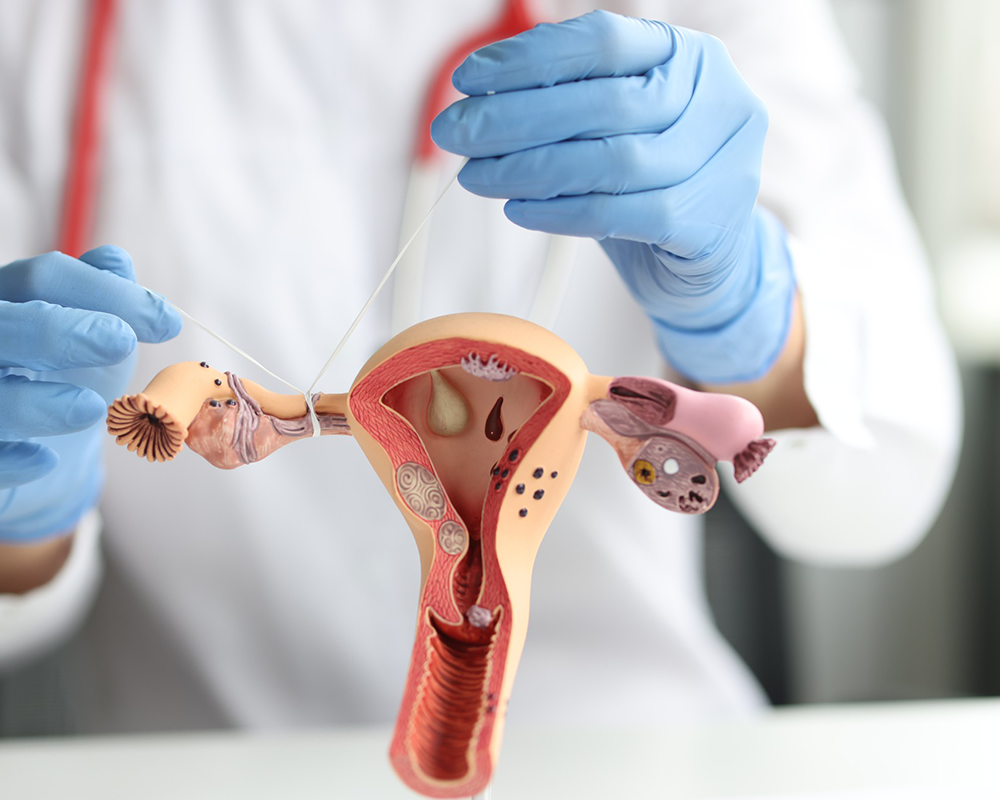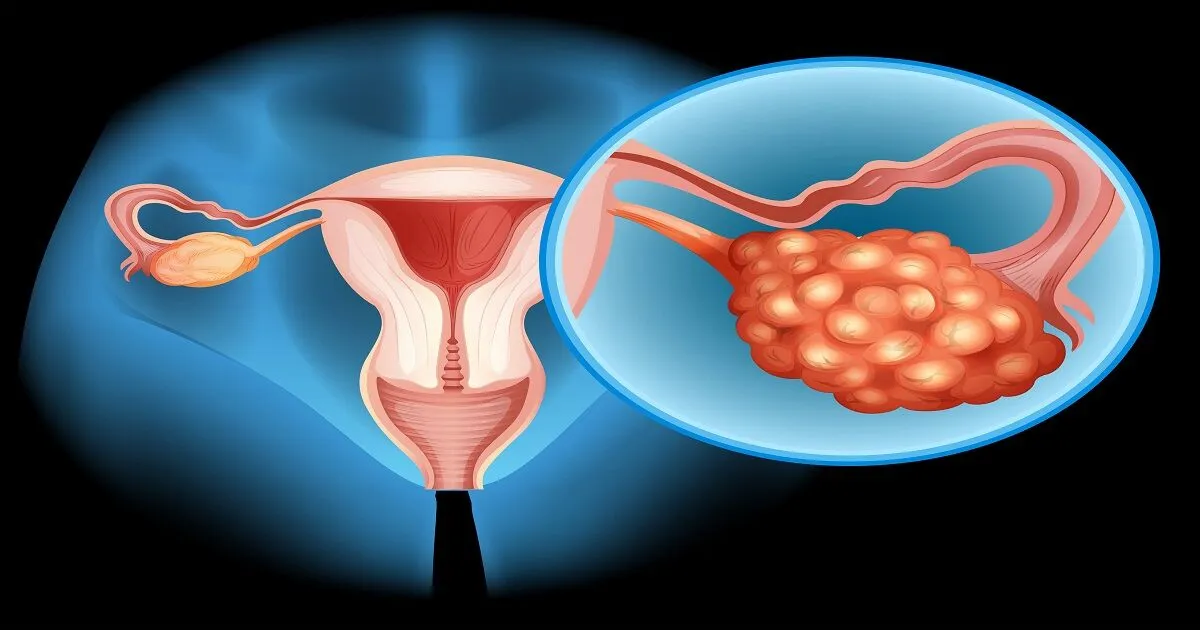Blog
PCOD/PCOS


🌸 What is PCOD/PCOS?
PCOD (Polycystic Ovarian Disease) and PCOS (Polycystic Ovary Syndrome) are common hormonal disorders affecting women of reproductive age. In simple terms, it means your ovaries are not functioning normally and are producing more male hormones (androgens), leading to irregular periods, unwanted hair growth, weight gain, and fertility issues. Though PCOD and PCOS are often used interchangeably, they have subtle differences. PCOS is more severe and affects metabolic health too.
🔹 Understanding the Basics
Ovaries are the reproductive organs in women that produce eggs and hormones like estrogen and progesterone.
In PCOD/PCOS, the ovaries produce multiple small, immature eggs (cysts) which may not get released regularly, causing irregular or missed periods, hormonal imbalances, and various physical and emotional symptoms
🔍 PCOD vs PCOS – What’s the Difference?
| Feature | PCOD | PCOS |
|---|---|---|
| Meaning | Polycystic Ovarian Disease | Polycystic Ovary Syndrome |
| Ovaries | Release immature eggs, form cysts | Eggs may not release at all |
| Hormones | Mild imbalance | Higher levels of male hormones (androgens) |
| Severity | More common, less severe | Less common, but more severe |
| Fertility Impact | May not affect fertility much | Can cause fertility issues |
🧬 What Causes It?
Doctors believe there isn’t one single cause, but a combination of factors including:
Genetics – if your mother or sister has it, you may too
Insulin Resistance – body doesn’t use insulin properly, raising androgen levels
Obesity or Unhealthy Weight – worsens hormonal imbalance
Stress & Sedentary Lifestyle – affects hormonal and metabolic function
Poor Diet – high sugar, processed foods, low fiber
🚨 Symptoms to Watch Out For:
Irregular, delayed, or missed periods
Excessive facial or body hair (hirsutism)
Persistent acne, oily skin
Thinning scalp hair or hair fall
Unexplained weight gain, especially around the belly
Difficulty getting pregnant
Mood swings, fatigue, anxiety, or depression
⚠️ Note: Not every woman will show all symptoms. Some may look healthy but still suffer internally.
❤️ Why Early Detection Matters
If left untreated, PCOD/PCOS can lead to long-term health issues such as:
Type 2 diabetes
High blood pressure
Infertility
Sleep apnea
Heart problems
Endometrial cancer (in rare cases)
The sooner you understand your body, the better you can manage and heal.

| ❌ Myth | ✅ Fact |
|---|---|
| PCOD means you can never get pregnant. | Many women with PCOD conceive naturally or with mild treatment. It’s manageable. |
| PCOD only affects overweight women. | Even lean women can have PCOD due to hormonal imbalance. Weight is one factor, not the only one. |
| Irregular periods are not a big deal. | Skipping periods regularly is a sign of hormonal issues and must be checked. |
| PCOD and PCOS are the same thing. | PCOD is a condition; PCOS is a more serious metabolic disorder. Both need different care. |
| You need to be on medication forever. | Lifestyle changes (diet, exercise, stress) can manage symptoms effectively without lifelong meds. |
| Hair loss and acne are just cosmetic. | These are signs of deeper hormonal imbalances and should be treated seriously. |
✅ PCOD Daily Routine Plan (Natural & Practical)
Here's a simple morning to night routine you can follow to balance hormones naturally:
🌅 Morning (6 AM – 9 AM)
🥤 Warm water with lemon or fenugreek seed water
🧘♀️ 30 minutes yoga / walking (focus on stretches, Surya Namaskar)
🍵 Herbal tea (like spearmint or cinnamon tea)
🍽️ Breakfast (9 AM – 10 AM)
High-protein breakfast: moong dal chilla, oats + nuts, poha with veggies
Avoid dairy, sugar, and white bread
Add flaxseeds or chia seeds for hormone support
🕛 Mid-Morning (11:30 AM – 12 PM)
Fruit (preferably low-GI): Apple, guava, berries
Herbal infusion (mint, tulsi)
🍱 Lunch (1 PM – 2 PM)
Balanced plate: roti (millet-based), dal, sabzi, salad
Avoid fried, spicy, and packaged foods
Add 1 tsp ghee in dal or roti – supports hormones
☀️ Evening (4 PM – 6 PM)
Herbal tea: cinnamon + ginger or spearmint tea
Light snack: roasted makhana, nuts, or chana
Quick 10-minute walk or stretching
🌙 Dinner (7 PM – 8 PM)
Light & early: khichdi, vegetable soup, or millet dosa
Avoid rice, heavy carbs, and sugar
Eat at least 2 hours before sleep
💤 Before Bed (9:30 PM – 10 PM)
Warm turmeric milk (use plant-based milk if avoiding dairy)
Deep breathing or meditation for 5–10 mins
Sleep by 10:30 PM – hormonal balance begins in good sleep!

